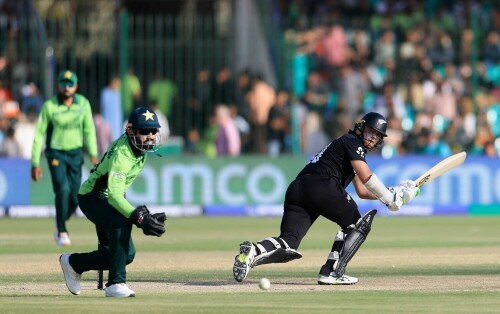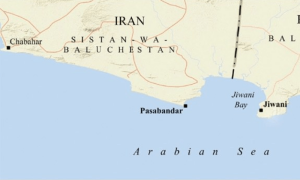JAKARTA, Oct 16: Painful reforms launched amid the maelstrom of the 1997-1998 Asian economic downturn have put the region in good shape to weather the much deeper crisis now gripping global markets, economists said.
Indonesia, South Korea and Thailand were at the centre of the storm a decade ago when high debts, low reserves, poor regulation and currency speculation triggered economic “contagion” that spread from Jakarta to Moscow.
The International Monetary Fund (IMF) threw lifelines worth $58 billion to Seoul, $43 billion to Jakarta and $17 billion to Bangkok in return for far-reaching reform as the three “Asian tigers” teetered near bankruptcy.
How times have changed.
Now it’s the United States and Europe which are leading the plunge with some of the world’s most respected investment banks collapsing under the weight of trillions of dollars in bad debts.
“Astonishing events have unfolded over the past few weeks. I mean, who would have thought that the American investment banking system would have basically disappeared? It’s amazing,” said IMF representative to Indonesia, Milan Zavadjil.Economists said the turmoil of 2008 was very different to the banking and currency crisis that spread through Asia a decade earlier, but there were also similarities such as mountains of bad debt and weak government oversight.
In contrast to 1997, most Asian economies would ride out the current storm with relative ease, they said.
However, countries which export heavily to the United States and Europe, such as Singapore, the Philippines and Hong Kong, may be exceptions.
“Indonesia is deleveraged, this is the point. The government has a low debt level by international standards,” Zavadjil said, adding that domestic consumption would continue to fuel growth.
“The consumers have been borrowing for cars and motorcycles but it’s nothing like the developed countries. Basically I think the fundamentals are very strong and it’s in good shape to weather this turmoil compared to other countries.” Indonesian President Susilo Bambang Yudhoyono won plaudits from economists in May when he took the unpopular decision to hike the cost of subsidised fuel to prevent surging crude prices blowing out the budget deficit.
The stock market was smashed as foreign funds withdrew from emerging markets at the onset of the US-led crisis, but economists praised Jakarta’s quick actions to ease liquidity, buttress the rupiah and maintain confidence.
“In terms of the government policy reaction I think now is much better than 1998 because the government is now very pre-emptive. They’re doing a much better job,” said Helmi Arman, an economist with Bank Danamon in Jakarta.
South Korean President Lee Myung-Bak has said the current situation was “wholly different from the foreign exchange crisis of 1997.”
“Excessive optimism is dangerous but we don’t have to be mired in pessimism and a sense of crisis,” he said last Tuesday, a day after Yudhoyono said he was “completely certain” there would be no repetition of the “nightmare” of 1998.
Lee cited foreign exchange reserves totalling some $239.7 billion, the world’s sixth largest and 12 times the amount it had in 1997.
The country’s corporate debt ratio has also fallen to around 100 per cent compared to 420 per cent in 1997.
“South Korea has nothing to fear, as all of its foreign currency holdings can be instantly cashed and are more than enough to cover its maturing short-term foreign debts,” Lee said.
South Korean financial institutions and giant conglomerates known as chaebol were required to undertake extensive reforms as a condition for the 1997 IMF bailout.
Dominic Barton, chairman of McKinsey and Co Asia Pacific, told the Korea Times that corporate debts remained manageable and foreign reserves were ample.
“We are in a difficult situation but I don’t think that we are in big trouble yet and going toward a financial crisis. Now is very different from the 1997-1998 financial crisis as we have much less corporate debt and much more foreign reserves,” he said.
In Thailand, KGI (Thailand) Securities head of research Adisak Kammool said big improvements in financial standards had given the country “very strong economic infrastructure.”—AFP












































